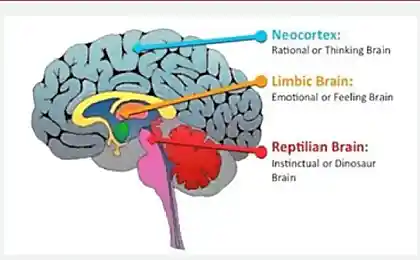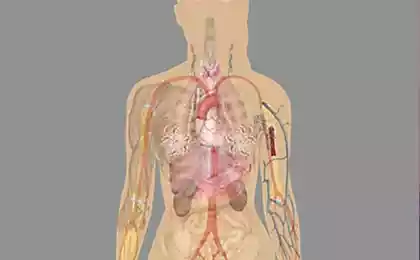403
Scientists have found a way to protect the brain from chemical toxins
Researchers at the University of new York have made a breakthrough that may prevent brain damage in humans when exposed to toxic chemicals: pesticides and chemical weapons.

A group of scientists discovered protein: phosphotriesterase that have a unique ability to degrade chemical class organophosphates, which are found in many toxic substances from industrial pesticides to sarin gas. It is the organophosphates are associated with neurotransmitters of the brain, interfering with their ability to function and causing irreversible damage. Dr. Jin Kim Montclare says: "Organophosphates pose tremendous danger to people and wildlife, and it is not uncommon for people to get in touch with these connections, either through pesticides or deliberate use of chemical weapons. We knew that phosphotriesterase help detoxify these nerve agents, but they were too fragile for use in therapeutic purposes."
A team of bioengineers headed Montclare developed a method for reengineering phosphotriesterase. As a result, scientists have obtained a thermostable protein which helps to detoxify. Now the developers have begun to develop therapeutic applications for this modified phosphotriesterase.
Experts explain that the possibility of a new protein significant. In addition to medicinal drugs which will reduce nerve damage in the case of a gas attack or pesticide poisoning, they can be used for processing chemicals.
Montclare explains: "Often, the stockpiles of chemical agent are decommissioned through processes that involve high temperatures and chemical reagents for neutralization.These proteins could accomplish that same task enzymatically, without the need of reactors and formation of dangerous by-products".
Source: nauka24news.ru/

A group of scientists discovered protein: phosphotriesterase that have a unique ability to degrade chemical class organophosphates, which are found in many toxic substances from industrial pesticides to sarin gas. It is the organophosphates are associated with neurotransmitters of the brain, interfering with their ability to function and causing irreversible damage. Dr. Jin Kim Montclare says: "Organophosphates pose tremendous danger to people and wildlife, and it is not uncommon for people to get in touch with these connections, either through pesticides or deliberate use of chemical weapons. We knew that phosphotriesterase help detoxify these nerve agents, but they were too fragile for use in therapeutic purposes."
A team of bioengineers headed Montclare developed a method for reengineering phosphotriesterase. As a result, scientists have obtained a thermostable protein which helps to detoxify. Now the developers have begun to develop therapeutic applications for this modified phosphotriesterase.
Experts explain that the possibility of a new protein significant. In addition to medicinal drugs which will reduce nerve damage in the case of a gas attack or pesticide poisoning, they can be used for processing chemicals.
Montclare explains: "Often, the stockpiles of chemical agent are decommissioned through processes that involve high temperatures and chemical reagents for neutralization.These proteins could accomplish that same task enzymatically, without the need of reactors and formation of dangerous by-products".
Source: nauka24news.ru/
























